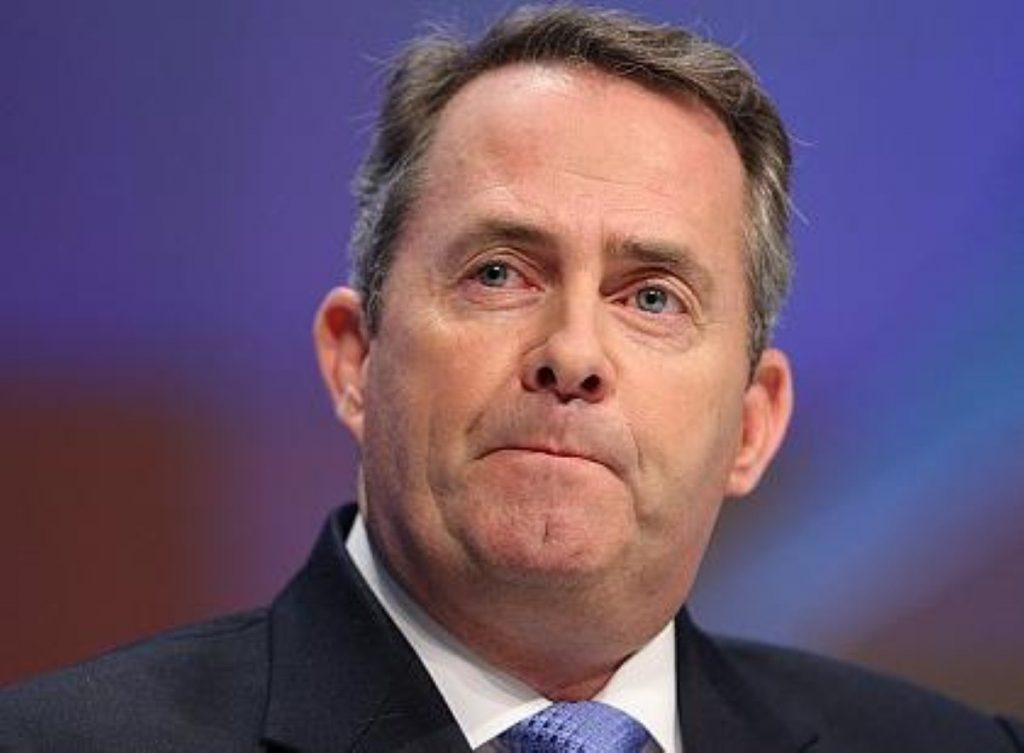Liam Fox resignation sketch: Some apologies are bigger than others
From the expenses scandal to the Werritty scandal, there is but one concern that I have just discovered: some apologies are bigger than others.
By Alex Stevenson Follow @alex__stevenson
After a prime minister's questions dominated by Liam Fox, and a statement from the leader of the House all about Liam Fox, it came as something of a surprise to see the man himself bustling quietly into the Commons chamber. The ex-defence secretary, whose 17 unbroken years on the frontline of politics came to an end on Friday, looked a little lost as he took his seat on the backbenches. The view must look very different from the back row. What was he thinking? That after a week of turmoil, this could be the end of his career?
Some people manage to look scruffy even when wearing a suit, but not Liam Fox. He was as polished and buttoned-up as he could be. His suit shimmered. He sat bolt upright. But he didn't have time to get comfortable, if that was possible for someone in his position. Barely a minute or two after entering, the Speaker was calling on him to deliver his personal statement.


There are different kinds of apology, aren't there? Sometimes, like shortly after an untactful remark about the wife's latest dress, you have to grovel for forgiveness. Sometimes, like shortly after insulting a baby sister, it's possible to say 'sorry' while making perfectly clear you don't mean it.
Fox said "sorry" twice in his statement, for breaching the ministerial code and for "all those who feel let down" by his decisions. Taken by itself, his flat, resigned tone (how appropriate) seemed reasonable enough. But it was cushioned by language so defiant, so unrepentant, that it made it seem like he didn't really feel very sorry at all.
For a brief moment I suspected Fox thought he might still be in government. He followed all the habits of a departmental response to a critical report, by following a quick concession of the weaknesses with a pointed referral to all the bits which made him look good. He said he was "pleased" by the report's "explicit acknowledgement" that he wasn't in it for the money and that it made clear national security had not been compromised by his actions. "Hurtful" accusations to this effect had been widely made, he said, sounding hurt.
These accusations were the fault of the media, who – according to Fox – are the real villains of the piece. He complained about members of his family being harassed in a truly alarmist tone. It was "unacceptable" that "elderly relatives and children" were being pestered. This, he warned, was driven by a "personal vindictiveness, even hatred, that should worry all of us".
It seemed ridiculous that a man whose actions had brought him to this situation was attacking the media. But his message appeared to resonate with MPs, whose memories of the expenses scandal still raw. Diverting my gaze from Fox to the rest of the chamber, it was striking how many backbenchers were staring angrily up at the little coterie of journalists in their press gallery, watching their latest victim wriggle.
If Fox was determined to turn himself into a martyr, it seemed to be working. The reaction of those around him showed he was still the darling of the Conservative right. After he had finished speaking they lined up to shake his hand, pat his shoulder and rub his back. Desmond Swayne, David Cameron's eyes and ears in the Commons, even gave him a manly bear hug. After a couple of minutes of this, Fox walked out of the chamber, surrounded by a little group of adoring supporters.
Was he contrite, embarrassed, ashamed, even? You might expect this from a man who had just said sorry to the Commons and the nation. But it didn't seem that way as he strode out, all dignity, his head held high.









